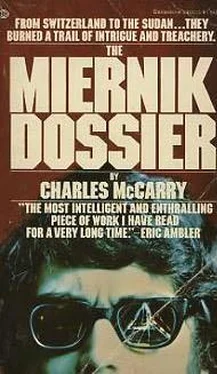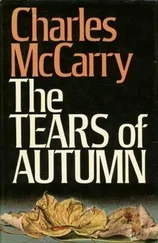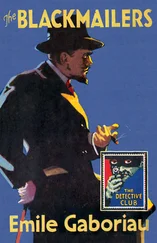I knew what had happened to her. I did not want Father to know that Poles had done this. So I told him a German airplane strafed us. I was in such a state of shock I could hardly talk. But I could lie. Father never believed it. Never. But it was better that I could let him blame the Germans: he had sent us into the countryside so that we would be safe.
Nigel does not know what he does when he speaks to me of Zofia being raped by bandits in the desert.
My attempts to elicit details of Christopher’s adventure in Czechoslovakia have so far come to nothing. Christopher himself is uncommunicative, and Prince Kalash seems already to have forgotten the incident. It was, he says, a boring day spent in a boring country. Miernik will say nothing. He sits up much of the night, writing in his diary. He carries this journal with him in the small briefcase that he has in his possession at all times.
2. Last night (18th June) Miernik gave a celebratory dinner at the Hochhaus Restaurant to introduce us to his sister. Zofia Miernik is a beautiful and intelligent girl and she would have been the feature of the evening if Miernik himself had not turned up in evening clothes. He went ahead of us to the restaurant to supervise arrangements. He had booked the best table on the terrace, which has a marvellous view of Vienna. By the time we arrived, champagne (German variety) was chilling in ice buckets and a squadron of waiters was bowing and flourishing napkins. Miernik, in his double-breasted dinner jacket and old-fashioned starched collar (with white tie), looked rather like a trained bear. (Christopher’s description.) But as usual he had got exactly what he wanted: just the right table, just the right degree of obsequious service, just the right tunes from the orchestra. His helpless air is an illusion. He is a tyrannical stage manager.
3. Zofia Miernik arrived with Christopher. She was wearing a blue frock cut very low at the neck, which certainly was not purchased in Warsaw. She speaks fluent German with almost no accent. On meeting Prince Kalash, she revealed that her English is excellent as well. Whatever else they may be, the Mierniks (assuming that Zofia is in fact a Miernik) are an educated family. Once we were seated, Miernik had the champagne opened and stood for a toast. “Gentlemen,” he said, “I present to you my sister, Zofia, in the hope that your friendship for her will be as steadfast as your friendship for me.” We all drank, though I did so with understandable mental reservations. Miernik then began snapping his fingers at the waiters, and a meal was served that actually began with caviar and ended with baked Alaska. Obviously it cost a fortune, but one assumes that Miernik has adequate sources of money.
4. I attempted to interrogate Zofia. A look of amusement crept over Christopher’s face. Miernik apparently had less confidence in his “sister’s” discretion; he was distinctly nervous. I asked Zofia how long she planned to remain in Vienna before returning to Poland. “I plan to travel for some time,” she said. How exactly did she travel to Vienna? Was it not inconvenient to leave Poland? “Friends were very kind,” Zofia said, “it was a very enjoyable journey-so much to see I had never seen before.” Yes, but how did she come- by air? by railway through Berlin? “By car, mostly. You’ve no idea how bad the roads are in the people’s democracies-but even that is preferable to flying; one is likely to land in a meadow or on a strip of country road.” She told of a friend who had flown to Bulgaria. Every hour or so, the old Dakota nosed over and bumped down in a field. Peasants came scrambling out of the woods carrying cages with chickens in them and blanket rolls, elbowing each other away from the door of the aircraft in a free-for-all rush for the seats. Some sat on the floor, eating sausages. Fifteen years under Communism has not deprived Zofia of her sense of class consciousness; as she mimicked the Bulgarian peasants she might have been a duke’s poor relation trying to talk in Cockney. If all this was produced by the Polish secret service they have a right to be pleased with their methods. Prince Kalash asked Zofia to dance and she rose and followed him onto the floor (H.R.H. does not let females walk ahead of him, of course). The Viennese were frozen in the middle of their fox-trots by the sight of this towering black holding a perfect Aryan specimen in his arms. As they danced it was plain that Prince Kalash would be raising no objection to Zofia’s joining our expedition. After they returned to the table, Zofia excused herself. Prince Kalash, lifting his wineglass and giving Miernik a friendly glance, observed: “Your sister has beautiful breasts. That is rare in a white woman.” Miernik has learnt that Khatar’s style of speech is never meant to be insulting. “I’m very happy you think so, Kalash,” he said. “Since childhood Zofia has been quite beautiful.” But when we returned to the hotel, Miernik was careful to escort his sister to her room himself, and I’m sure he advised her to lock the door.
5. After Zofia Miernik had retired, and her brother had gone out for his usual midnight walk, Christopher rang me up and invited me to the bar. Over a cognac he told me that Miernik was determined to take Zofia along on the remainder of the trip. Prince Kalash is, as I predicted, more than willing. “Miernik is afraid you’ll be disagreeable about it,” Christopher said. “I am to use my influence with you to persuade you to accept the inevitable.” There was no basis on which I could openly object to her coming along. I said I thought it was a bad idea to introduce a girl into the situation, especially such a good-looking one. Christopher refuses to see a problem. No doubt his instructions as well as his instincts tell him to keep an eye on Zofia. Once again I tried to implant the idea that Zofia cannot possibly be Miernik’s sister. “I don’t see why not,” Christopher said. “I don’t look anything like my brothers and sisters. Besides, what difference does it make?” There is between us a sort of cousinship; he sees that I am an agent like himself, and he understands. Each of us takes it for granted that the other is under discipline, though nothing has ever been stated in the open about this. There are limits to this kind of a relationship: I cannot cross the boundary to ask him what precisely he was doing in Czechoslovakia. He cannot come over to my side to volunteer any information. The conversation dwindled down to an hour of good-natured chaff about the Mierniks. “If they do have the same father,” Christopher said, “the old man must have been under an enchantment. He got old Tadeusz while he was still a frog, and Zofia after he was turned into a prince.” That’s as good a theory as any I’ve been able to put forward.
43. REPORT FROM THE FILES OF THE VIENNA CRIMINAL POLICE.
The body of a well-dressed male was discovered at approximately 1015 hours on 19 June in the Prater, in shrubbery between the Hauptallee and the Trotting Course. Discovery was made by Fräulein Hilde Schenker, who had entered the park with the purpose of bird-watching.
There was no identification on the body. Through comparison of fingerprints taken from the cadaver with those in the central police files, it was established that the dead man was one Heinz Tanner, aged about forty, domiciled at III. Vienna, Baumgasse 17.
The body showed no marks of violence. The preliminary ruling of the ambulance physician was that Tanner had died of natural causes, probably of a heart attack.
An autopsy was ordered after the identity of the dead man was established. Time of death was approximately 0130 hours 19 June. Examination of the mucus of the nose and throat, of the lung tissues, and of the other internal organs revealed traces of cyanide. Forensic investigation suggests that cyanide was introduced into the body in the form of a spray.
Читать дальше












